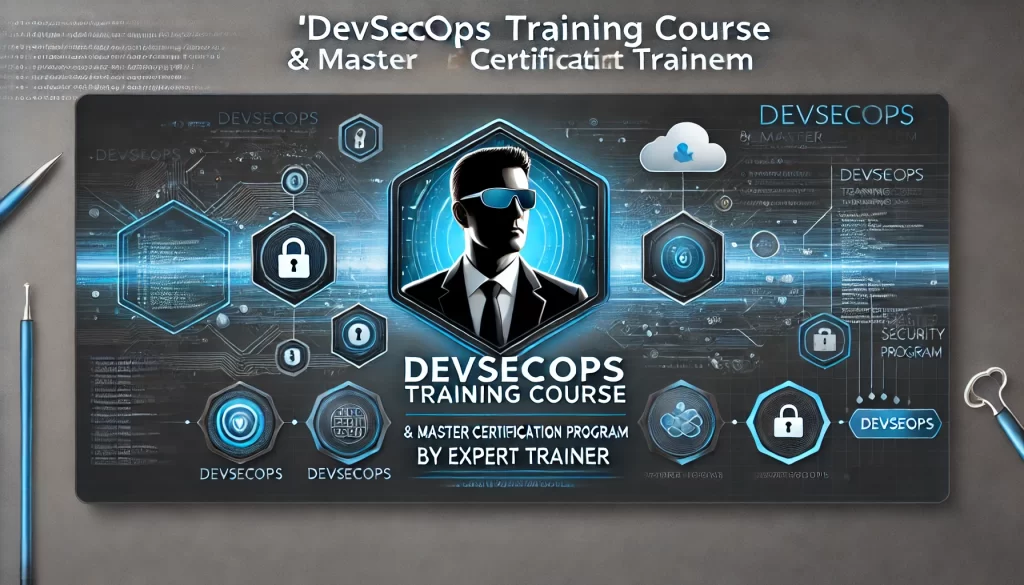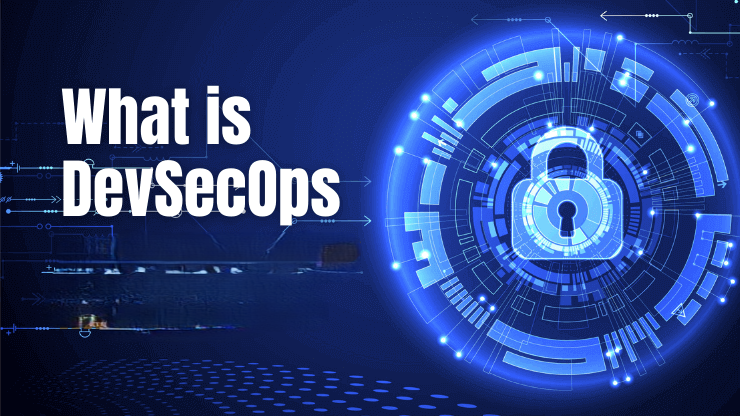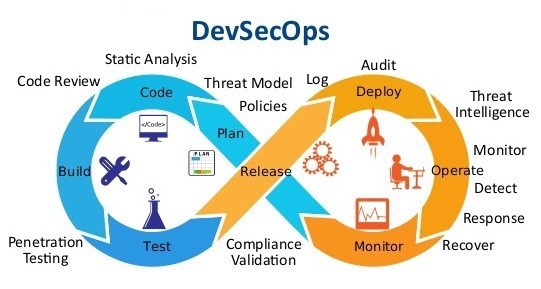
DevSecOps Training Course Master Certification Program is a comprehensive training program offered by theaiops.com, designed to equip professionals with the skills needed to integrate security practices into the DevOps pipeline. This course, led by expert trainer Rajesh Kumar, emphasizes the importance of securing every phase of the software development lifecycle. Participants will learn to implement security automation, vulnerability scanning, threat modeling, and compliance management using popular DevSecOps tools like Jenkins, Docker, Kubernetes, and various cloud security solutions. The course combines theoretical knowledge with hands-on experience, enabling learners to effectively integrate security into CI/CD pipelines, monitor security threats, and respond to incidents. Upon completion, students will receive a certification that demonstrates their expertise in DevSecOps practices, allowing them to enhance their organization’s security posture while maintaining the speed and efficiency of DevOps processes. Whether you’re an IT professional, DevOps engineer, or security specialist, this course provides the essential skills to build secure, scalable, and reliable systems.

What is DevSecOps?
DevSecOps is an approach to software development and operations that integrates security practices directly into the DevOps pipeline. In traditional development models, security was often handled separately from the development process, leading to potential vulnerabilities and delays in addressing security issues. DevSecOps addresses these concerns by embedding security into every stage of development, from design through coding and deployment, ensuring secure, fast, and efficient delivery of applications.
Why DevSecOps is Important?

DevSecOps is essential in today’s fast-paced development environment due to the increasing frequency and sophistication of security threats. Traditional security measures often come after the development process, leading to significant delays and vulnerabilities being discovered too late.
Reasons to Learn DevSecOps:
- Proactive Security: By integrating security into every development lifecycle phase, organizations can identify and mitigate vulnerabilities early.
- Faster Time to Market: Automation of security testing allows teams to address vulnerabilities without compromising the speed of deployment.
- Reduced Risk of Breaches: Continuous security checks and monitoring help prevent potential breaches, reducing the impact of attacks.
- Compliance with Regulations: DevSecOps helps ensure that security practices meet industry regulations and standards, reducing legal and financial risks.
- Enhanced Collaboration: Security teams work alongside developers and operations teams, improving overall collaboration and sharing security knowledge.
- Cost-Effective: Identifying and fixing security issues early in the development process is far less expensive than addressing them post-production.
Course Features
This DevSecOps Master Certification Course offers a comprehensive curriculum for professionals who want to master security in DevOps environments.
- Expert-Led Instruction: Rajesh Kumar, a seasoned expert in DevSecOps, will guide you through the nuances of secure software development, infrastructure, and automation.
- Comprehensive Curriculum: The course covers key topics such as security automation, threat modeling, secure coding practices, infrastructure security, compliance, and continuous monitoring.
- Hands-On Labs: Practical exercises allow you to work with industry-standard tools like Jenkins, Docker, Kubernetes, and others, applying security best practices.
- Advanced Topics: The course covers advanced DevSecOps topics, including compliance automation, secure containerization, and incident response strategies.
- Interactive Sessions: Collaborative exercises and real-world case studies enhance learning by providing insight into solving complex security challenges.
- Flexible Delivery: The course is available both online and in-person, with recorded sessions for later review.
Training Objectives
Upon completion of the DevSecOps Master Certification program, participants will be able to:
- Understand DevSecOps Principles: Learn how to integrate security at every phase of the DevOps lifecycle, from planning to production.
- Master Security Tools and Automation: Gain hands-on experience using tools like Jenkins, SonarQube, Terraform, and HashiCorp Vault.
- Implement Continuous Security Practices: Automate security checks and integrate them into CI/CD pipelines for seamless, continuous security.
- Perform Penetration Testing: Learn how to use tools like OWASP ZAP to perform security testing and vulnerability assessments on web applications.
- Secure Containers and Kubernetes: Understand how to secure containerized applications and manage Kubernetes clusters with security best practices.
- Enhance Cloud Security: Gain skills to secure cloud environments, implement secure infrastructure as code, and automate security policies with Terraform and Ansible.
- Build a Security Culture: Implement a security-first mindset within development and operations teams, ensuring security is considered at every stage of the project.
Target Audience
This course is designed for:
- DevOps Engineers: Wanting to incorporate security into their DevOps workflows and processes.
- Software Developers: Looking to integrate security measures directly into their coding practices and pipelines.
- System Administrators: Seeking to implement security at the infrastructure level.
- Security Professionals: Wanting to expand their skills into the DevOps and automation domains.
- IT Managers & Architects: Looking to build secure DevOps pipelines and enforce security policies across teams.
- Compliance and Risk Managers: Interested in ensuring that their organization adheres to industry regulations and best practices.
Training Methodology
The course follows a blended learning approach, combining theoretical lectures with practical hands-on sessions to ensure a deep understanding of concepts.
- Lectures: Each session begins with a lecture on key topics, delivered by Rajesh Kumar, with in-depth explanations and real-world examples.
- Hands-On Labs: After the theoretical foundation, learners apply concepts through practical labs using industry-standard tools. This provides immediate feedback and reinforces learning.
- Group Exercises: Collaborative exercises allow learners to work in teams, promoting problem-solving and knowledge sharing.
- Q&A Sessions: Regular interactive sessions are included to allow learners to ask questions and clarify doubts directly with the instructor.
- Case Studies: Real-world DevSecOps implementations help learners understand how security is applied in different environments and industries.
Certifications Program
Upon completion of the course, participants will receive:
- DevSecOps Master Certification: A prestigious certification awarded by DevOpsSchool.com, verifying your expertise in integrating security into the DevOps pipeline.
- Tool-Specific Certifications: Recognize your mastery of specific tools like SonarQube, Jenkins, Docker, and Terraform.
- Completion Certificate: A certificate acknowledging your participation and completion of all practical exercises.
Agenda for DevSecOps Training Program
Day 1: Introduction to DevSecOps & Security Automation
- Overview of DevSecOps principles and practices.
- Introduction to security tools: Jenkins, SonarQube, Git.
- Setting up CI/CD pipeline for secure code integration.
- Hands-on: Implementing security tests in a Jenkins pipeline.
Day 2: Container Security & Penetration Testing
- Introduction to Docker and container security.
- Securing Kubernetes clusters and containerized applications.
- Performing penetration testing with OWASP ZAP.
- Hands-on: Deploying a secure containerized application and testing for vulnerabilities.
Day 3: Infrastructure Security & Cloud Security
- Securing cloud environments with Terraform and Ansible.
- Implementing infrastructure as code for security compliance.
- Automating security checks with Terraform and HashiCorp Vault.
- Hands-on: Building a secure infrastructure using Terraform and securing secrets with Vault.
Lab Setup
Participants will need the following for the hands-on labs:
- Hardware: Laptop or PC with a minimum of 8 GB RAM, Intel i5 processor, and at least 100 GB of free disk space.
- Software: Install Docker, Jenkins, Git, Terraform, and other necessary tools.
- Cloud Access: AWS or Azure accounts for cloud-based lab exercises.
- Environment Setup: Detailed step-by-step lab guides and scripts to set up your DevSecOps environment on your machine.
Trainers
Rajesh Kumar
Rajesh Kumar is an expert in DevSecOps with over 15 years of experience in secure software development, cloud security, and automation. As the founder of www.RajeshKumar.xyz, he has helped countless professionals and organizations adopt DevSecOps practices to secure their applications and infrastructure. Rajesh is known for his hands-on, practical approach to training, ensuring that every participant can implement DevSecOps practices effectively.
Frequently Asked Questions (FAQ)
- Do I need prior DevOps experience to take this course?
- While some knowledge of DevOps will help, the course covers everything from the basics to advanced topics in DevSecOps.
- Which tools are covered in the course?
- Tools include Jenkins, Docker, Kubernetes, SonarQube, Terraform, HashiCorp Vault, OWASP ZAP, and more.
- What is the format of the course?
- The course is a blend of lectures, hands-on labs, and group exercises, with practical exposure to industry-standard tools.
- How long is the course?
- The course duration is three days, with full-day sessions covering theory and hands-on practice.
- Is the course online or in-person?
- The course is available both online and in-person, depending on your location.
- What certification will I receive?
- You will receive the DevSecOps Master Certification from DevOpsSchool.com and additional tool-specific certifications.
- Will I be able to apply for jobs after completing the course?
- Yes, this course equips you with the skills and certifications needed to qualify for DevSecOps roles in top organizations.
- Is there any support available after the course?
- Yes, participants have access to ongoing support via email and forum discussion groups.
- How can I register for the course?
- You can register directly on DevOpsSchool.com.
- Do I need to bring my laptop?
- Yes, you will need to bring a laptop with the required software installed for lab sessions.
- What are the prerequisites for this course?
- Basic knowledge of software development, DevOps practices, and IT security concepts is recommended.
- What happens if I miss a session?
- All sessions are recorded and available for later review.
- Will I receive a certificate after completing the course?
- Yes, a certification will be provided after the successful completion of the training and exams.
- Is there any post-training support for clearing exams?
- Yes, we offer support for exam preparation through additional resources and guidance.
- What is the main benefit of learning DevSecOps?
- It helps integrate security into the DevOps lifecycle, ensuring faster, secure, and compliant application delivery.
